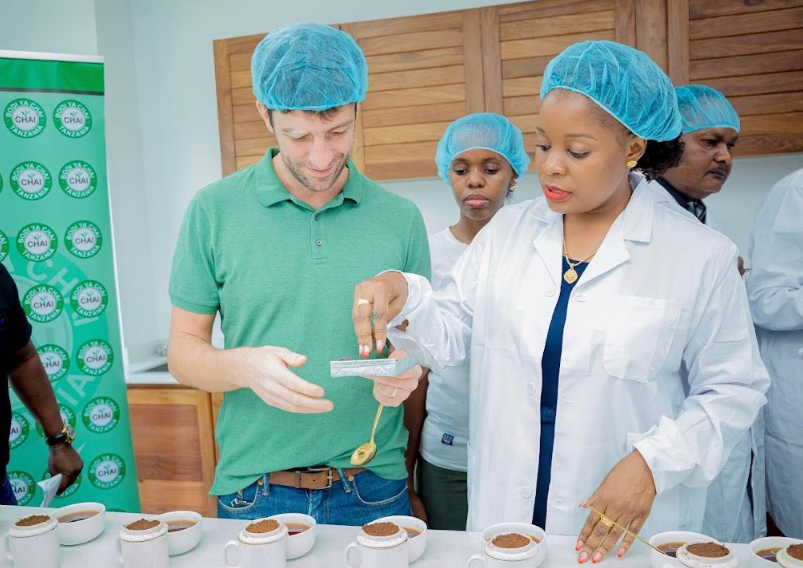20 Essential Tips for Profitable Poultry Farming in East Africa
With the right approach, poultry farming can be a rewarding and prosperous venture.
Kilimokwanza.org Team
Poultry farming in East Africa holds great potential for entrepreneurs looking to tap into the agricultural sector. With the right strategies and knowledge, this venture can be highly profitable. This article provides 20 essential tips to help you maximize your profits in poultry farming.
Poultry farming in East Africa offers tremendous opportunities for entrepreneurs. By adhering to these 20 tips, you can build a profitable and sustainable poultry business. Stay dedicated, keep learning, and remain responsive to changes in the market and industry.
1. Choose the Right Breed: Select breeds that are well-suited to the East African climate, such as the Kuroiler or Kenbro. These breeds are hardy and have good feed-to-meat or egg conversion rates. Breeds like Kuroiler and Kenbro are popular choices due to their adaptability to local conditions, high productivity, and resistance to common diseases. These breeds have been genetically developed to thrive in East Africa, offering better survival rates, faster growth, and efficient feed conversion compared to traditional breeds.
When choosing a breed, consider factors like the purpose of farming (meat or eggs), climatic adaptability, growth rate, and market demand. Researching and investing in a breed that aligns with these factors will ensure higher productivity and profitability. Also, sourcing chicks from reputable suppliers guarantees good genetic quality and initial health.
2. Understand Your Market
A deep understanding of the local market is fundamental. Research the demand dynamics in your area – are consumers more inclined towards egg consumption, or is there a higher demand for poultry meat? Such insights help in tailoring your production to meet specific market needs, thereby ensuring a steady demand for your products.
It’s also important to understand pricing trends, customer preferences, and seasonal fluctuations in demand. This knowledge helps in making informed decisions about scaling up production, adjusting prices, and exploring potential markets. Regular interaction with local buyers, retailers, and market surveys can provide valuable insights.
3. Quality Feed
The health and productivity of poultry largely depend on their diet. High-quality feed ensures optimal growth and production. It’s crucial to provide a balanced diet that includes proteins, carbohydrates, vitamins, and minerals. Poor quality feed not only affects the health of the birds but also reduces their productivity, impacting overall profitability.
While it might be tempting to go for cheaper feed options, investing in quality feed pays off in the long run through better production rates and healthier poultry. Consider locally available feed options that are cost-effective and nutritious. Also, regular monitoring of the birds’ growth and health can help in adjusting their diet as needed.
4. Water Management
Consistent access to clean water is essential for poultry health. Water plays a critical role in regulating body temperature, digesting food, and eliminating waste. Lack of clean water can lead to dehydration, reduced productivity, and increased susceptibility to diseases.
Implement an efficient water management system that ensures a constant supply of fresh water. Regularly clean water containers to prevent the spread of diseases. During hot weather, extra attention should be paid to water supply to prevent heat stress among the birds.
5. Disease Prevention
Disease prevention is key in poultry farming, as outbreaks can be catastrophic. Implementing strict biosecurity measures such as controlling the movement of people and equipment, maintaining cleanliness, and proper disposal of dead birds and waste, can significantly reduce the risk of disease spread.
Regular monitoring for signs of illness and prompt response to any health issues is critical. Educate yourself and your staff about common poultry diseases, their symptoms, and prevention strategies. Keeping the farm environment clean and minimizing stress factors for the birds also contribute to disease prevention.
6. Vaccination
Vaccination is a vital part of disease prevention in poultry farming. Regular vaccinations protect birds from common and potentially fatal diseases such as Newcastle disease, Gumboro disease, and avian influenza. These vaccinations are crucial for maintaining the health of the flock and ensuring uninterrupted production.
Develop a vaccination schedule in consultation with a veterinary professional. Ensure that the vaccines are stored and administered according to recommended guidelines. Keeping accurate records of vaccinations helps in tracking and managing the health status of your flock.
7. Efficient Housing
The design of poultry houses significantly impacts the health and productivity of the birds. Good housing provides protection from predators, extreme weather, and facilitates effective management of the birds. The house should be spacious enough to prevent overcrowding, which can lead to stress and disease spread among the birds.
Para 2: The house should have proper ventilation, adequate lighting, and be designed to facilitate easy cleaning and disinfection. Consideration should also be given to the orientation of the house to maximize natural light and air flow, which are crucial for the birds’ well-being.
8. Proper Ventilation
Adequate ventilation is essential in poultry housing to ensure a healthy living environment for the birds. Proper airflow helps in regulating temperature, reducing humidity, and minimizing the concentration of harmful gases like ammonia. Poor ventilation can lead to respiratory problems and increase the vulnerability of birds to diseases.
The design of the poultry house should facilitate cross-ventilation while protecting the birds from direct drafts. Adjustable ventilation systems can be helpful in managing airflow according to seasonal changes. Regular checks and maintenance of the ventilation system ensure its effectiveness and the health of the flock.
9. Waste Management
Effective waste management is crucial in maintaining a hygienic environment for poultry farming. Accumulation of waste can lead to the development of harmful pathogens, attract pests, and contribute to the spread of diseases. Proper disposal of manure and dead birds is necessary to maintain farm hygiene.
Implement a waste management plan that includes regular cleaning and disinfection of the poultry house, safe disposal or utilization of manure, and proper handling of mortalities. Composting or selling poultry manure as fertilizer can be an effective way of waste recycling.
10. Record Keeping
Accurate record-keeping is essential for tracking the progress and profitability of your poultry farm. Records should include details about feed consumption, growth rates, egg production, health interventions, and financial transactions. This data provides valuable insights into the performance of your farm and helps in making informed decisions.
Utilize record-keeping tools such as farm management software or simple ledger books to keep track of all activities. Regularly review these records to identify trends, areas for improvement, and to plan future strategies. Good records are also important for financial planning, loan applications, and in case of audits or inspections.
11. Scale Wisely
Starting small and gradually scaling up is a prudent approach in poultry farming. This allows you to gain experience, understand the market, and manage risks effectively. Expanding the farm too quickly can lead to management challenges and financial strain.
Before expanding, ensure that the existing operation is stable and profitable. Consider factors such as market demand, available resources, and your ability to manage a larger operation. Careful planning and gradual scaling help in sustaining long-term growth and profitability.
12. Diversify Your Products
Diversification can stabilize income and reduce risks in poultry farming. By producing both eggs and meat, you can cater to different market segments and mitigate the impact of fluctuations in one product line. Diversification can also include processing and selling value-added products like packaged meat or pasteurized eggs.
When diversifying, assess the market demand for different products and the required resources for production. It’s important to maintain the quality of all product lines and manage them efficiently to ensure overall profitability.
13. Training and Skills Development
Continual learning and skills development are crucial in the ever-evolving field of poultry farming. Staying informed about the latest practices, technologies, and market trends is essential for success. Training can include topics like advanced farming techniques, disease management, and business skills.
Attend workshops, seminars, and agricultural shows to gain knowledge and network with other farmers and experts. Encourage and facilitate training for your staff as well to ensure they are skilled and knowledgeable in their roles.
14. Leverage Technology
Embracing technology can significantly enhance the efficiency and profitability of your poultry farm. Technologies like automated feeding systems, climate control, and health monitoring tools can improve productivity and reduce labor costs.
Utilize digital tools for marketing, customer engagement, and managing farm operations. Online platforms can be used for selling products, reaching new customers, and engaging with the community. Technology can also aid in data collection and analysis for informed decision-making.
15. Understand the Legal Requirements
Compliance with local agricultural and business regulations is essential for the legality and sustainability of your poultry farm. This includes obtaining necessary permits, adhering to zoning laws, and following animal welfare standards. Non-compliance can lead to legal issues and affect the reputation of your business.
Stay informed about relevant laws and regulations, which can change over time. Seek advice from legal experts or government agencies if needed. Good compliance not only avoids legal problems but can also be a selling point to customers who are increasingly conscious of ethical and legal standards in food production.
16. Community Engagement
Engaging with the local poultry farming community can provide support, shared learning, and collaborative opportunities. Participating in local farmer groups or cooperatives can lead to shared resources, collective bargaining power, and a stronger voice in local and national agricultural policies.
Collaboration can also open up avenues for joint marketing efforts, knowledge exchange, and mutual support in times of challenges. Building good relationships with other farmers, local businesses, and the community enhances the resilience and sustainability of your farming business.
17. Financial Management
Effective financial management is key to the success of any business, including poultry farming. This involves careful budgeting, monitoring expenses, and making cost-effective decisions. Efficient financial management helps in maximizing profits and ensuring the long-term viability of the farm.
Keep track of all financial transactions and regularly review your income and expenses. Consider using financial management software for better tracking and analysis. It’s also important to have a contingency fund for unexpected expenses like disease outbreaks or market fluctuations.
18. Market Your Products
Effective marketing is crucial for the success of your poultry business. Develop a marketing strategy that highlights the quality and uniqueness of your products. Understanding your target audience and their preferences will help you in positioning your products effectively in the market.
Utilize various marketing channels like social media, local markets, and word-of-mouth. Building a strong brand can lead to customer loyalty and repeat business. Participating in local fairs and agricultural shows is also a great way to showcase your products and network with potential customers.
19. Adapt to Changes
The agricultural sector, including poultry farming, is subject to various changes such as market trends, consumer preferences, and environmental factors. Being adaptable and responsive to these changes is key to maintaining a profitable business. This may involve altering production methods, exploring new markets, or diversifying products.
Stay informed about industry trends and market shifts. Being proactive and flexible in your approach will help you to quickly capitalize on new opportunities and mitigate potential risks. Regularly review and update your business plan to reflect current realities and future projections.
20. Sustainability
Implementing sustainable farming practices is essential not only for environmental responsibility but also for the long-term profitability of your poultry farm. Sustainable practices include efficient use of resources, responsible waste management, and maintaining the health and welfare of your poultry.
Consider renewable energy sources, like solar power, for your farm operations. Sustainable farming practices can also be a unique selling point for your products, as consumers are increasingly conscious of environmental and ethical aspects of food production.


